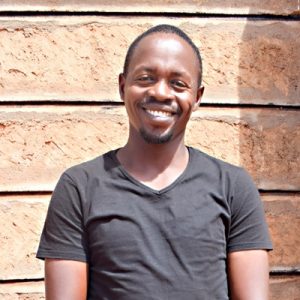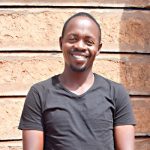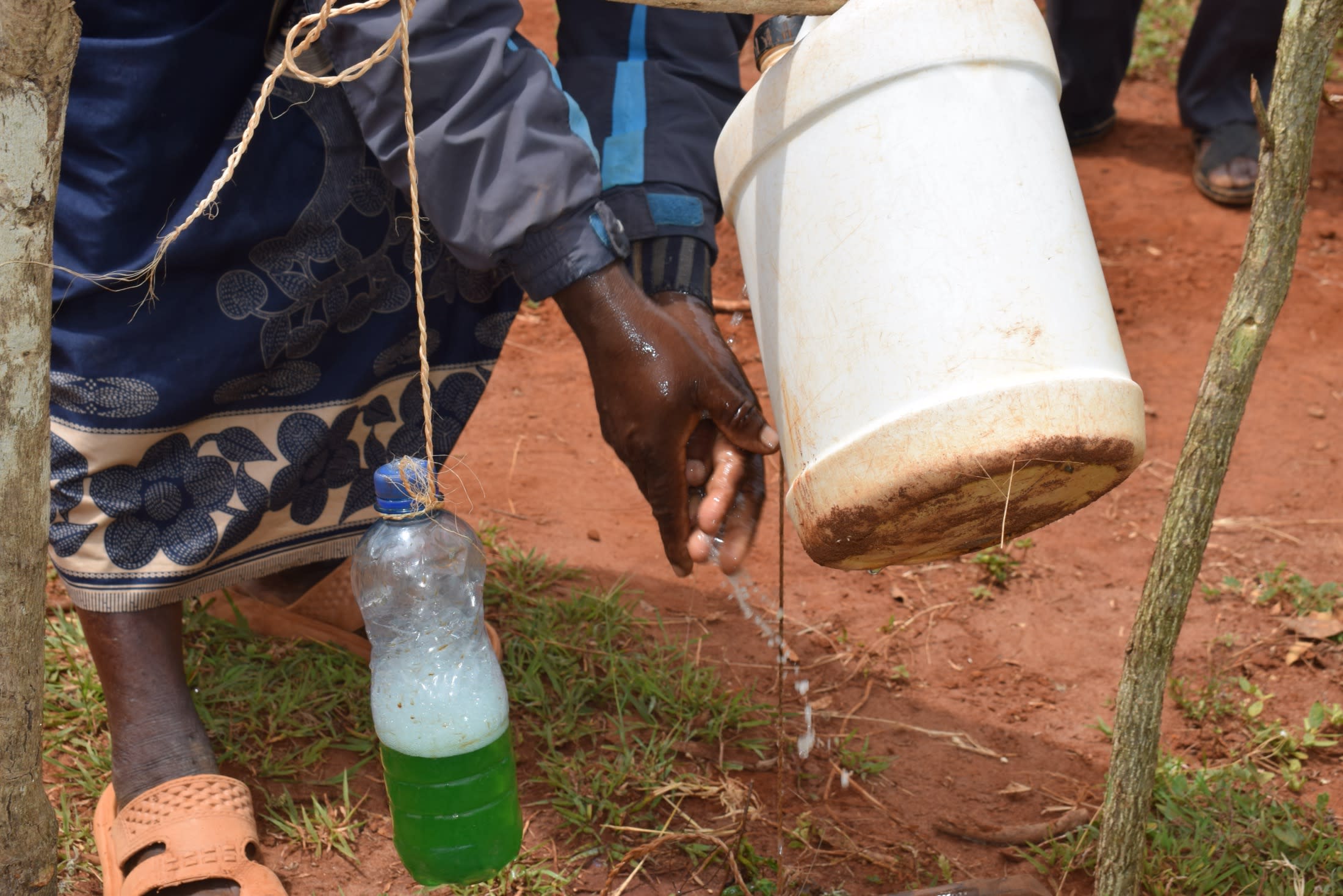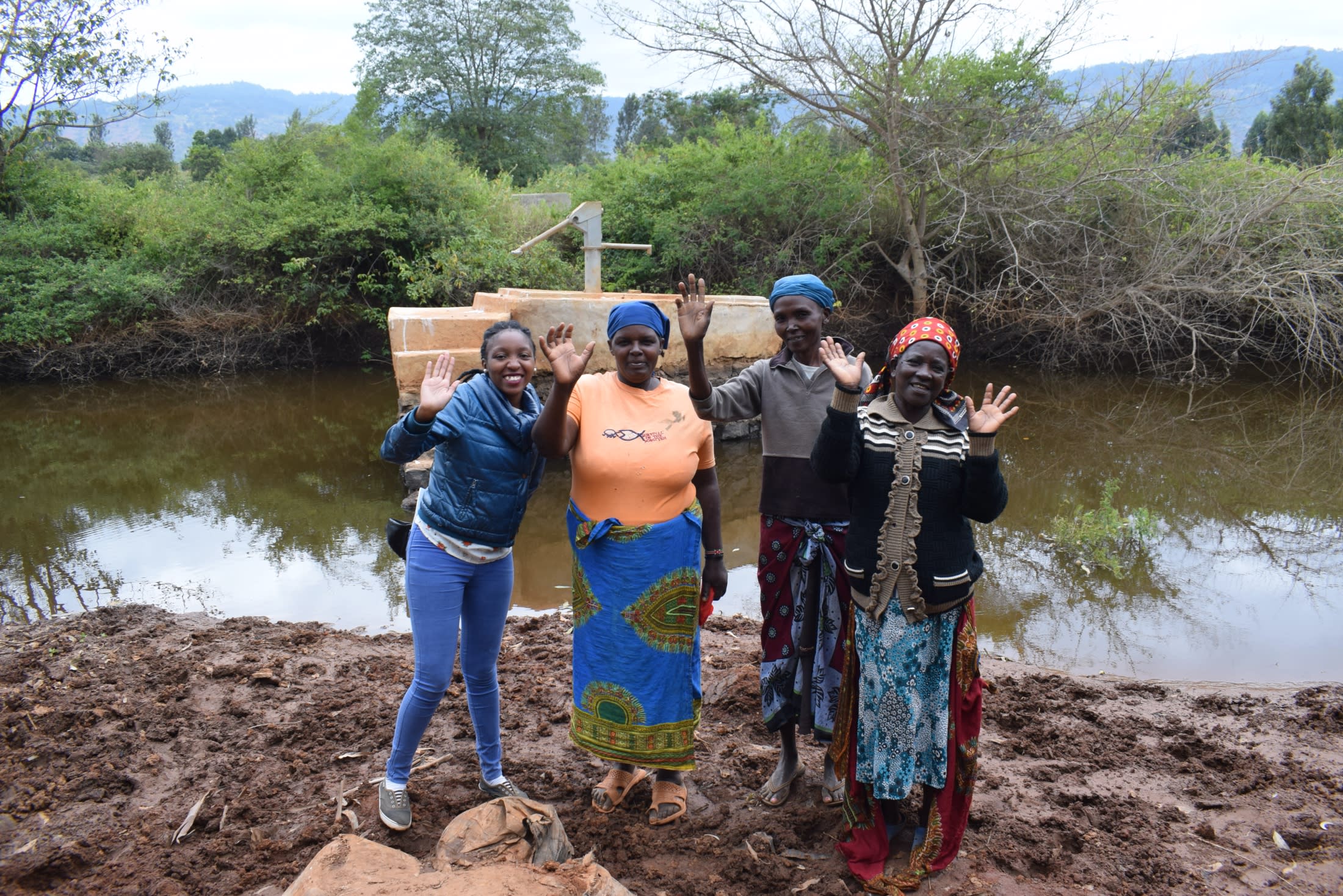The people in Kaliani travel more than two miles to the Kinze River to fetch water from scoop holes in the riverbed. That means it takes more than an hour to fetch water every day.
The distance is so far that some people have to pay others to fetch their water and carry it back using donkeys. These scoop holes are open, unprotected and prone to contamination.
Virtually no households undertake the proper steps to treat and protect drinking water, we found. This is because they believe the water sources are safe and also some find the water treatment exercise to be too time-consuming.
"I wouldn't drink this water because it is prone to contamination," our reporting officer said, after visiting the source.
This is home for Kikaka Self-Help Group, which aims to help Kitandini, Kaliani, and numerous other villages in this area of Kenya. The group is comprised of farmers who believe that if they work together to address food and water scarcity in their area, they’ll grow stronger.
This is Kikaka Self-Help Group’s first year in partnering with us, and they look forward to having a huge impact on this region. They will take part in a five-year collaboration to improve access to safe water and sanitation in the community. We are also constructing another dam and well with this group this year. Go here to learn more.
"Our children and community members have suffered a lot because of the water problem in this area. We hope that the implementation of this project will make things better," Mr. Mwakavi Kimeu said.
Most households have latrines, but the ones we visited were in poor shape. The floor looked as if it might fall in at any moment and the roof was leaking from recent rains. As a result, some people in this community practice open defecation - something that poses a health risk to everyone here.
This area is quite a drive from our main office. It’s 133 kilometers of easy driving on a highway through Wote Town, but then it gets difficult: 44 kilometers on bumpy, hilly Murram Road.
It is a rural, peaceful area. Most of the households dotting the terrain are made of brick walls and dirt floors.
What we plan to do about it:
Our main entry point into Kaliani Community has been the Kikaka Self-Help Group, which is comprised of farming households that are working together to address water and food scarcity in their region. These members will be our hands and feet in both constructing water projects and spreading the message of good hygiene and sanitation to everyone.
Training
We’re going to continue training the self-help group members and their communities on hygiene and sanitation practices. Though our visits to households were encouraging, we want to ensure that community members are practicing the day to day habits we are not able to observe. Food hygiene, water hygiene and treatment, personal hygiene and handwashing will all be a focus during our next review.
Hand-Dug Well
This particular hand-dug well is being built adjacent to this group’s ongoing sand dam project (click here to see), which will supply clean drinking water once it rains. We have supplied the group with the tools needed for excavation. With the guidance of our artisans and mechanics, the excavated well will be cased, sealed with a well pad, and then finished with a new AfriDev pump.
Excavation takes a month or more on average, depending on the nature of the rock beneath. Construction of the well lining and installation of the pump takes 12 days maximum. The well will be lined with a concrete wall including perforations so that once it rains, water will filter in from the sand dam.
This well will be located in Kaliani Village and will bring clean water closer to families having to walk long distances for their water.



 Rehabilitation Project
Rehabilitation Project


































